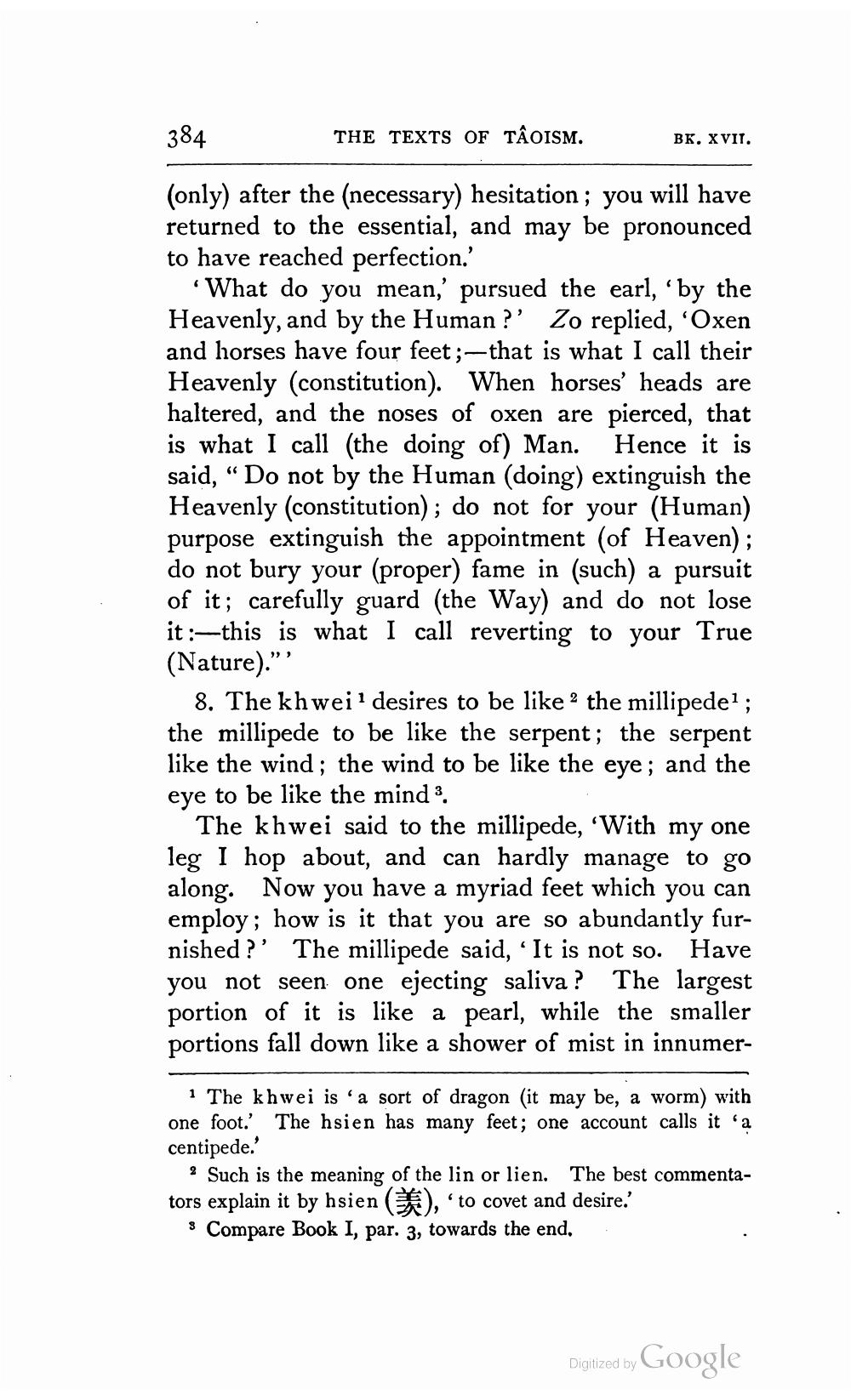________________
384
THE TEXTS OF TAOISM.
(only) after the (necessary) hesitation; you will have returned to the essential, and may be pronounced to have reached perfection.'
'What do you mean,' pursued the earl, 'by the Heavenly, and by the Human?' Zo replied, 'Oxen and horses have four feet;-that is what I call their Heavenly (constitution). When horses' heads are haltered, and the noses of oxen are pierced, that is what I call (the doing of) Man. Hence it is said, "Do not by the Human (doing) extinguish the Heavenly (constitution); do not for your (Human) purpose extinguish the appointment (of Heaven); do not bury your (proper) fame in (such) a pursuit of it; carefully guard (the Way) and do not lose it-this is what I call reverting to your True (Nature)."'
BK. XVII.
8. The khwei1 desires to be like 2 the millipede1; the millipede to be like the serpent; the serpent like the wind; the wind to be like the eye; and the eye to be like the mind3.
The khwei said to the millipede, 'With my one leg I hop about, and can hardly manage to go along. Now you have a myriad feet which you can employ; how is it that you are so abundantly furnished?' The millipede said, 'It is not so. Have you not seen one ejecting saliva? The largest portion of it is like a pearl, while the smaller portions fall down like a shower of mist in innumer
1 The khwei is a sort of dragon (it may be, a worm) with one foot.' The hsien has many feet; one account calls it 'a centipede.'
2 Such is the meaning of the lin or lien. The best commenta
tors explain it by hsien (), 'to covet and desire.'
3 Compare Book I, par. 3, towards the end.
Digitized by Google




